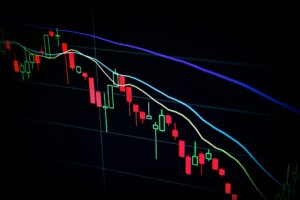Last updated on March 10, 2024

| The 2024 presidential elections in the United States are poised to occur against a backdrop of significant economic challenges and global financial uncertainties. The International Monetary Fund (IMF) projects a global inflation rate of 5.8% in 2024, with variations across different economies. Advanced economies are expected to experience inflation below 3.0%, while emerging markets could face inflation rates exceeding 7.8%. In the U.S., relatively lower inflation rates present an economic advantage, but the country is not immune to potential crises in the banking and commercial real estate sectors. This economic scenario will play a crucial role in shaping the political discourse and voter preferences during the elections. Historically, U.S. presidential elections have been a determinant of economic trends and stock market behaviors. The S&P 500, for instance, has averaged a gain of about 7.5% in presidential election years. Particularly during years when a president seeks re-election, the stock market has tended to perform above average. However, election years are also marked by initial volatility in the stock market, influenced by investor uncertainties regarding tax and spending policies, and potential shifts in sectors like healthcare, defense, and energy. The global economic landscape, characterized by a post-pandemic splintering economy and slowed growth in key economies such as China, adds another layer of complexity. These global conditions, along with geopolitical tensions, are reshaping supply chains and creating new |
Key Terms:
- Global Inflation Rate: The percentage increase in the price level of goods and services across various countries over a specific period.
- S&P 500: A stock market index that measures the stock performance of 500 large companies listed on stock exchanges in the United States.
- Economic Growth: An increase in the production of economic goods and services, compared from one period of time to another.
- Geopolitical Tensions: Political issues that have implications across different countries or regions, often involving conflicts or disagreements.
- Supply Chains: The systems of organizations, people, activities, information, and resources involved in moving a product or service from supplier to customer.







Comments are closed.